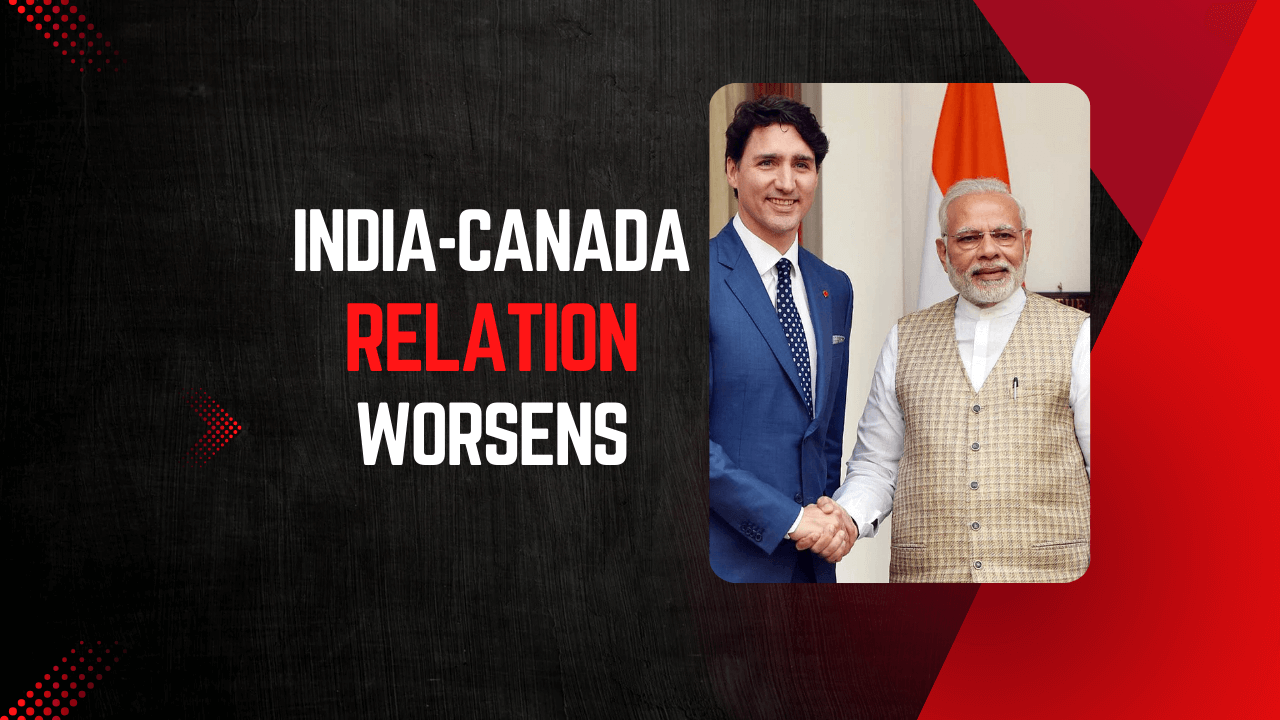The diplomatic relations between India and Canada have been sore since the beginning of this year. As Justin Trudeau alleged the involvement of Indian intelligence agencies last year behind the killing of a Khalistani terrorist, Hardeep Singh Nijjar, relations took a nosedive. Since then, there have been a lot of heated diplomatic exchanges between the two countries.
Let’s go ahead and see what’s going on between India and Canada.
Table of Contents
ToggleStrained India-Canada Relations: 2024; Assasination Of A Khalistani Terrorist
Relationships between India and Canada saw a dramatic downturn in 2024. A Khalistani separatist leader’s death in 2023 was allegedly the result of Indian involvement, according to Canadian Prime Minister Justin Trudeau’s accusations, which made matters worse than they were before. The Indian government denied the allegations and termed them “baseless” and “politically motivated” accusations. The lack of concrete evidence from Canada was met with strong denials from India. A diplomatic deadlock resulted from this exchange.
Remarks made by Jagmeet Singh, the leader of Canada’s New Democratic Party (NDP), which presently backs the minority Liberal government, further complicated the situation. Singh, a Sikh himself, maintained the allegations that the Indian government is intervening in spite of the Canadian police probe that is still underway. This act of political pressure on law enforcement strained the ties between the countries further.
Many areas were affected by the diplomatic ruckus. Both sides tightened their scrutiny of visa applications, many trade agreements were shelved or canceled, and student exchange programs faced uncertainty. The thriving Indian community in Canada experienced difficulties as well and some expressed concerns for their personal safety.
Canada Accuses India of Foreign Interference in Elections: Khalistani Links?
Pro khalistan slogans made in the presence of Canada PM Justin Trudeau at Khalsa Day Celebrations in Sunday. pic.twitter.com/I1aaqhA6uY
— Sidhant Sibal (@sidhant) April 29, 2024
There has been evidence of foreign interference in Canada’s 2019 and 2021 federal elections, according to a recent public inquiry. The report raised concerns about the actions of Indian officials, even though China was found to be the most active perpetrator.
The interim report, headed by Commissioner Marie-Josee Hogue, claims that India participated in a number of activities targeted at influencing Canadian politicians and communities through its representatives and proxies stationed in Canada. With regard to Khalistan, the autonomous homeland of the Sikh people, they sought to harmonize Canada’s position with that of India.
Canada is home to a sizable Indian diaspora, and some in the Indian government believe that some parts of this community are inciting anti-Indian sentiment. According to the report, India does not distinguish between violent extremism and nonviolent political advocacy for Khalistani State. India has reacted angrily to these charges, saying that it is Canada that interferes in their domestic affairs by providing a haven for “separatists, terrorists, and anti-India elements.”
Indian foreign influence targets notable non-Indo-Canadians as well as Indo-Canadians, according to the Canadian report. Even though the investigation turned up no proof of Indian disinformation efforts during the 2021 election, it did raise questions about the possibility of some political campaigns using money obtained illegally. The Canadian government took strong action to address these issues, as the report notes.
Both Canada and India keep lines of communication open despite continuous tensions arising from alleged support for Khalistani State. According to the report, Hogue examined classified intelligence on possible Indian interference and concluded that Canada’s response was adequate.
To Summarise
Tensions will increase between India and Canada in 2024. A diplomatic controversy began last year when Prime Minister Justin Trudeau of Canada claimed that India was responsible for the death of a Khalistani leader. There was a stalemate because both sides refuted each other’s claims. Stricter visa rules, trade delays, and anxieties within the Indian diaspora residing in Canada were the results of the standoff.
A Canadian investigation that discovered evidence of foreign intervention in their elections, including actions by Indian officials, has added fuel to the flames.
Click here to read more global news updates!
FAQs
What caused tensions in India-Canada relations?
Canada accused India of involvement in a Khalistani leader’s death; this caused massive diplomatic tension between the two countries.
How did India respond to the accusations?
India denied the allegations from the Canadian side and called them “baseless.”
What were the consequences of the diplomatic row?
Stricter visa rules, trade delays, and anxieties within the Indian community in Canada.
Are there any signs of improvement in India-Canada relations?
Communication channels remain open, but the future is uncertain. If Trudeay decides to have an open and unbiased conversation with the Indian side, then things might improve.







